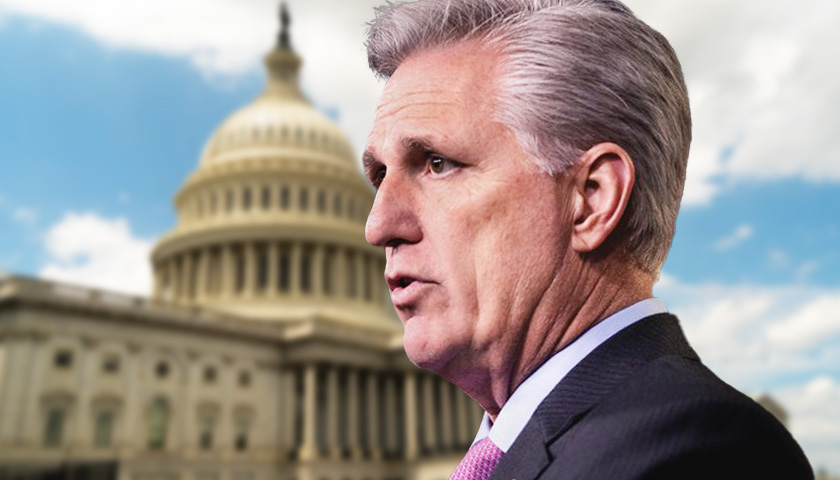by Eric Lendrum
In the aftermath of the disappointing 2022 midterm election results, conservative Republicans in the House of Representatives have signaled that House Minority Leader Kevin McCarthy (R-Calif.) may not have the support he needs to become the next Speaker of the House.
As reported by The Hill, some Republicans have asked that the party’s closed-door leadership election be delayed while the results of the outstanding races come in.
Congressman Scott Perry (R-Penn.), chairman of the House Freedom Caucus, said in an interview on Thursday that “we don’t even know if we have the majority or who’s in the majority. People haven’t come to Washington, D.C. because they don’t know if they’ve won their races yet.”
“And how can they be expected to vote for a rules package, how we run this place, or leadership if they haven’t met these people, they haven’t heard their pitch?” Perry asked rhetorically.
While McCarthy himself and his supporters have expressed confidence that he will win the race for speaker, others have come out and declared that, as it currently stands, he would not reach the majority threshold of 2018 votes.
“It takes 218 votes,” said Congressman Chip Roy (R-Texas). “And there’s not a soul in this town right now that has 218 votes.”
Congressman Andy Biggs (R-Ariz.), a conservative who is popular with the grassroots base, has also signaled that the underwhelming midterm performance has impacted McCarthy’s alleged plans for an aggressive GOP majority.
“I think that his statement recently that we shouldn’t impeach [Homeland Security] Secretary [Alejandro] Mayorkas indicates maybe we’re not gonna be as aggressive going forward as we should be,” Biggs said on Thursday.
As of Friday, the GOP has gained 19 House seats while the Democrats have gained 11, for a net change of R+8. The GOP went into the midterms needing just 6 seats in order to gain a majority of 218 seats. While several races remain outstanding, including GOP seats that could flip to the Democrats, most projections expect the Republican Party to retake the House, albeit by a smaller margin than originally anticipated.
McCarthy’s speaker woes seem to indicate that little has changed over the last seven years in terms of his support among conservatives. In 2015, after the resignation of Speaker John Boehner (R-Ohio), then-Majority Leader Kevin McCarthy was the initial favorite to succeed him; however, his lack of support among conservatives, as well as last-minute allegations of an extramarital affair, ultimately forced him to withdraw from the race. He was ultimately replaced by Congressman Paul Ryan (R-Wisc.), who had risen to prominence as the GOP’s vice presidential nominee in 2012 under Mitt Romney.
– – –
Eric Lendrum reports for American Greatness.
Photo “Kevin McCarthy” by Kevin McCarthy. Background Photo “U.S. Capitol” by Thomas Lin.




